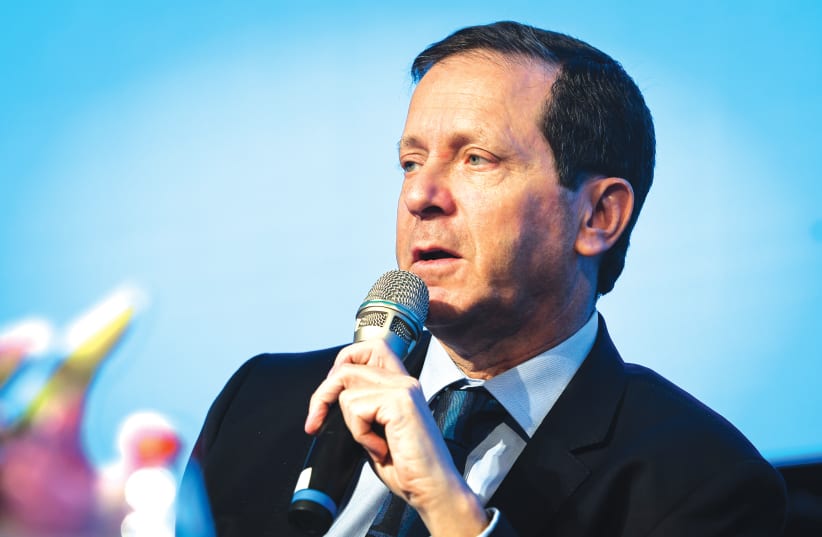Text messages revealed in the public corruption trial of Prime Minister Benjamin Netanyahu on Monday showed that former Labor Party leader Isaac Herzog said that Walla’s coverage of the prime minister was primarily negative.
The messages were sent by Herzog to former Walla CEO Ilan Yeshua who was cross-examined again by Netanyahu lawyer Boaz Ben Zur.
Netanyahu hopes that points like this one will convince the Jerusalem District Court that there was no media bribery scheme in his favor.
The foundation of Case 4000, the Bezeq-Walla Affair, is the prosecution allegation that Netanyahu slanted government policy in favor of Bezeq in exchange for positive coverage from Walla, with both companies owned by co-defendant Shaul Elovitch.
Ben Zur confronted Yeshua with the text messages between him and Herzog saying “take a look at what the political rival [of Netanyahu] during those years wrote to you. Herzog would be expected to know about Walla’s coverage, correct?”
Yeshua answered, “for sure.”
Following up, Ben Zur asked, “so in response to your statement that the coverage of the prime minister during that period was primarily negative, he [Herzog] wrote that this was a great response. Can you explain how the main political rival [of Netanyahu] would write that your statement was correct?”
This time, Yeshua said, “this shows you that not only CEOs [like himself], but also politicians sometimes write things that they do not really mean.”
Ben Zur responded, “a fantastic answer. Do you know what Herzog’s next answer to you was?”
“I don’t remember,” replied Yeshua.
Without missing a beat, Ben Zur said, “I don’t know either, because it has not been provided to us, but maybe we will get it at some point.”
The context of the conversation between Herzog and Yeshua was the former Walla CEO’s response to a 2015 article in Haaretz by Gidi Weiss alleging that Walla’s coverage had been systematically slanted toward Netanyahu.
Yeshua rejected the allegations and Herzog was privately agreeing with Yeshua’s rejection, though the former Walla CEO was now telling Ben Zur that he thought if Herzog was being completely honest, and not trying to gain his own leg in with Yeshua, that he would have actually agreed with Weiss.
Ben Zur’s last quip about missing part of Yeshua’s communications with Herzog relates to a separate claim he kept referring to in which he alleged that the prosecution had provided only some of Yeshua’s text messages to the defense.
According to Ben Zur, the prosecution has willfully withheld some other messages which might help the defense’s case, disingenuously claiming they are not relevant.
The prosecution has said that the defense received unprecedented access to Yeshua’s messages and that sometimes the defendants’ lawyers are trying to go on “fishing expeditions” for irrelevant text messages just to find ways to embarrass witnesses in the case.
Also on Monday, Ben Zur presented a series of cases in which Yeshua intervened in news coverage for commercial advertising interests of Walla, such as for Coca Cola.
Even more problematic, Ben Zur got Yeshua to admit that in many of these cases, Yeshua’s intervention in news coverage to try to please advertising clients would benefit the Walla CEO personally since he received a bonus relating to advertising revenues.
Ben Zur said this showed that Yeshua had lied when he said that he rarely intervened with news coverage during the prosecution’s presentation – something which should undermine his general credibility as a prosecution witness.
Yeshua responded that he intervened in news coverage far less than most CEOs of media companies and that there was nothing wrong with his interventions, even if he might get a bonus and have a conflict of interest.
Generally speaking, news organizations are not supposed to allow their news coverage to be impacted by advertising interests, but recent decades have seen a shift in this area as the Internet and social media weakened news organizations financially.
Yeshua also returned to his refrain that no matter how he intervened for others, the 315 interventions for Netanyahu in coordination with regulatory issues which Bezeq needed were highly unique.
